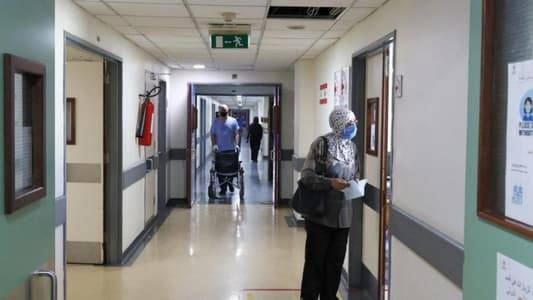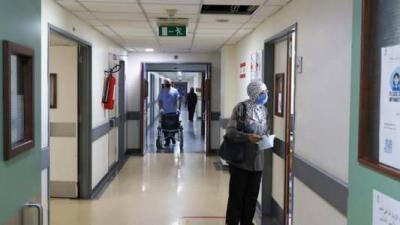A total of 945 health and administrative workers, forming 250 field teams, are engaged in a campaign to deliver the cholera vaccine "from house to house." So far, the number of vaccinated individuals has exceeded 405,000 across 45,000 homes, distributed in six districts across four governorates. Additionally, 82 educational institutions and four prisons have been covered. The Ministry of Health aims to immunize all residents in Lebanon to curb the spread of cholera bacteria. Consequently, half of the vaccinated individuals are Lebanese, and the other half are Syrians and Palestinians.
On the other hand, the cholera outbreak continues to expand, making it easier to mention the districts that have not yet reported cases rather than naming the affected ones. There are only four districts out of 25 that remain free of bacteria: Baalbek, Rashaya, Hasbaya, and Jezzine. The death toll has reached 20, remaining stable at this number for two weeks, with an estimated fatality rate of 0.5%. This rate could be lower due to undiagnosed cases exceeding the official figures, but those remain asymptomatic. Furthermore, the number of infected individuals has been increasing daily at an estimated rate of 3.5%, with 4,775 recorded cases recently, 26% of whom are children under four years old.
However, relying solely on vaccines to curb the epidemic is unlikely to succeed. The maximum achievable outcome from this campaign is "slowing down the spread" until electricity and thus water conditions improve in hot spots across Lebanon. Additionally, UNICEF's recent report on the cholera situation states that Lebanon needs 1.8 million vaccine doses. This was earlier confirmed by Health Minister Firas Al-Abyad, who stated, "the ministry has requested 1.8 million cholera vaccine doses." Media officer for the Minister of Health, Rowa Al-Atrash, clarified that "they will arrive in Lebanon in batches in about two weeks, with the first batch containing 600,000 doses." To add to these rising numbers, UNICEF has requested an additional $9 million on top of the $29 million to support its cholera campaign in Lebanon, bringing the total to $38 million.
# Rota... A New Concern
Alongside cholera, the Rota virus has resurfaced as a new concern for Lebanese parents, especially regarding their children. This virus affects more than 95% of children worldwide at least once in their lives before the age of five. The number of cases is rising globally this year, with nearly 25 million cases reported, of which two million required hospitalization according to the World Health Organization.
With the Minister of Health announcing the inclusion of the Rota vaccine in Lebanon's mandatory vaccination schedule, the total number of mandatory vaccines now stands at 11. The Rota vaccine had long been categorized as "a necessary additional vaccine offered to children in Lebanon voluntarily since 2000," according to pediatric specialist Dr. Hanan Al-Masri, who insists on "its importance due to the spread of epidemics and diseases around us in Lebanon." This situation prompted the ministry to move towards making it mandatory, as Minister Firas Al-Abyad confirms, "the increasing risk of epidemic transmission through contaminated water is due to the poor state of the sewage network."
Pediatric specialist Dr. Nabil Haj Hasan relies on "the recommendations of the World Health Organization and the European Society of Pediatrics" to stress the need for the Rota vaccine to become mandatory, stating "the rise in infections will lead to high hospitalization costs and pose a danger to children's health." He warns parents of "the necessity of vaccinating children from two months to one year of age," noting that while the vaccine does not prevent the initial infection with the virus, it will mitigate symptoms. Dr. Haj Hasan concludes that "after one year of age, children should not receive the vaccine, even if they have not had it before," reminding that this virus does not pose a threat to older adults.
Thus, this vaccine will become free upon its inclusion in the mandatory vaccination list. In this context, it is noted that UNICEF will provide 100,000 doses, distributed across 800 vaccination points to vaccinate all children in Lebanon.




